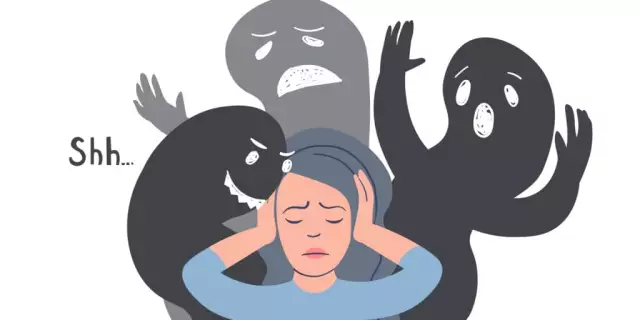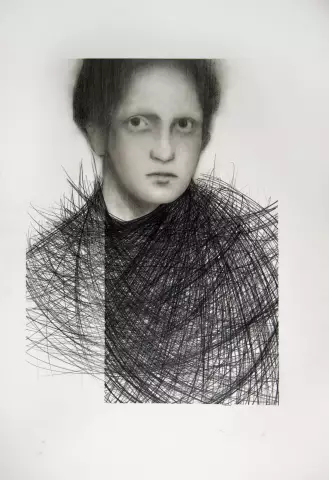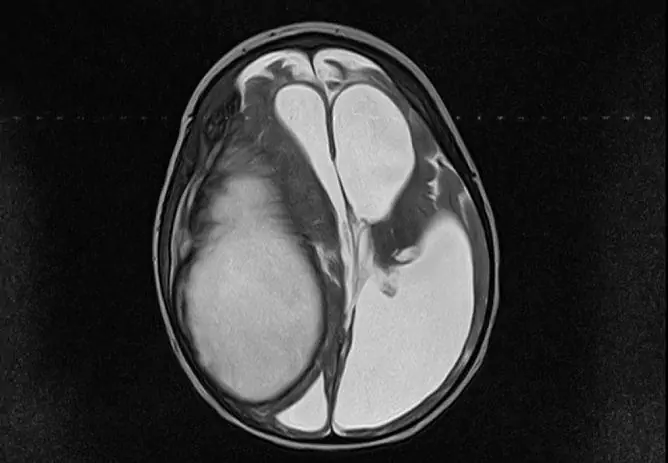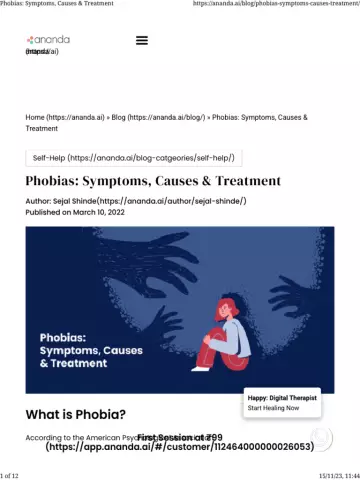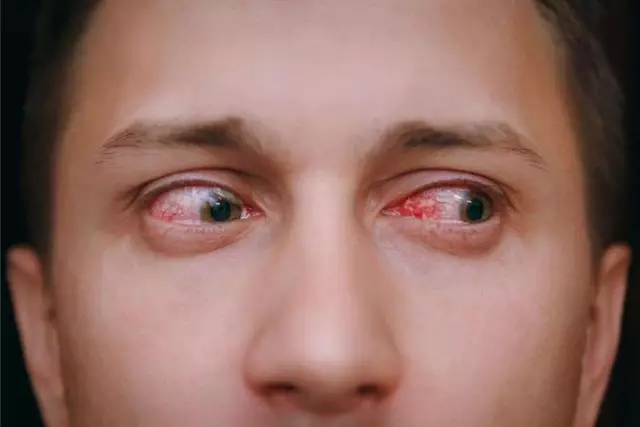- Author Rachel Wainwright wainwright@abchealthonline.com.
- Public 2023-12-15 07:39.
- Last modified 2025-11-02 20:14.
Schizophrenia
General characteristics of the disease

Schizophrenia is a medical term used to refer to a group of mental disorders. Based on the various signs of schizophrenia, several types of the disease are distinguished. Each of them is characterized by disorders of varying severity in the behavior of the patient, his thinking and expression of emotions.
The main symptom of schizophrenia of any kind is a distorted perception of reality by a person, which causes serious personality changes. These manifestations are usually episodic in nature, but the frequency of exacerbations in each patient is individual. The so-called psychotic episodes sometimes occur only a few times in the life of a person with schizophrenia, and the rest of the time he is in remission. Until the next relapse, he can give the impression of a completely healthy person without showing any signs of schizophrenia.
The causes of schizophrenia
Schizophrenia is a fairly common disease diagnosed in an average of 1% of the world's inhabitants. The first psychotic episode in the life of a schizophrenic patient occurs, as a rule, before the age of 30. Moreover, the early signs of schizophrenia in men most often appear before the age of 20. In contrast, in women, the disease is rarely diagnosed during adolescence. The peak of the severity of signs of schizophrenia in the fairer sex is 25-30 years old.
The exact cause of schizophrenia is unknown. For most researchers of this serious mental disorder, it is indisputable that the disease cannot be caused by educational errors or weakness of character of the patient with schizophrenia. To date, the most recognized theory is the complex nature of the etiology of the disease. A significant role in the development of schizophrenia is played by a genetic factor. Patients with schizophrenia are more common in families with a hereditary predisposition to the disease.
The factor of disturbed chemical balance in brain processes, as well as possible anatomical pathologies of the organ, has a right to exist. Some scientists fully admit that certain environmental conditions, for example, situations of severe stress, could serve as a trigger for mental disorders in people with schizophrenia.
Schizophrenia symptoms
A complex set of very different symptoms of schizophrenia is conventionally divided into 3 large groups. The first of these includes the so-called positive symptoms of schizophrenia. In this context, the word "positive" is used not in the sense of "good", but means that a patient with schizophrenia has signs that are completely atypical for a healthy person. Delusional ideas and hallucinations are considered positive or psychotic symptoms of schizophrenia.
The second group consists of disorganized symptoms of schizophrenia. They are manifested in the inability of a person to think logically and adequately respond to what is happening. People with schizophrenia, for example, have incoherent speech, rapid transitions from one confused idea to another. Patients with disorganized symptoms move at a slow pace, constantly forget or lose things, and repeat the same movements for a long time.
And the last third group is formed by the negative symptoms of schizophrenia. They are expressed in the absence of emotions in the patient with schizophrenia or in the inappropriate expression of these emotions in relation to the situation, for example, laughter instead of crying. Patients with schizophrenia have no interest in life. They are often characterized by a sudden change of mood and canonicity. Its essence lies in the long-term ability of a patient with schizophrenia to remain in a state of immobility.
Diagnosis of schizophrenia
There are no specific laboratory tests for diagnosing schizophrenia. Traditional methods of studying the composition of blood, urine, x-rays and ultrasound of organs are used in order to exclude the possibility of organic causes that cause the manifestation of schizophrenia. If the therapist fails to detect any physical factors that provoke signs of schizophrenia, then he refers the patient to a narrow specialist - a psychiatrist. Further diagnosis of the disease takes place in the format of a conversation with the patient and observation of his behavior.
Schizophrenia treatment

Complete cure for schizophrenia is impossible. There is only a comprehensive supportive therapy for the disease. Its goal is to reduce the severity of signs of schizophrenia and reduce the likelihood of a relapse of the psychotic episode. Medical treatment for schizophrenia consists in the appointment of antipsychotics. They successfully deal with many of the symptoms of schizophrenia: hallucinations, delusions, etc.
Psychosocial treatment of schizophrenia is a set of techniques for overcoming the patient's problems in the field of social adaptation. The schizophrenic patient is taught to recognize the early signs of the disease and, to the best of his ability, to control their manifestation. As part of the psychosocial treatment of schizophrenia, the doctor and patient work together to develop a plan of action in case of recurrence of the psychotic episode. At the same time, individual and family psychotherapy sessions are held.
Treatment for schizophrenia is life-long and also includes the rehabilitation of the patient, his development of social skills and professional skills in order to help the patient with schizophrenia, as much as possible, to live in society. Hospitalization of a patient with schizophrenia in closed medical institutions is carried out only if the person poses a threat to others, and also if he is capable of causing harm to his health or life.
Traditionally, schizophrenia is treated on an outpatient basis with an individual schedule of taking medications, sessions of psychological counseling, etc. The most aggressive methods - electroconvulsive therapy and psychosurgery - are used only when all other already tried methods of treating schizophrenia are useless.
Are schizophrenic patients dangerous?
Most patients with this type of mental disorder are not dangerous to others. People with schizophrenia tend to isolate themselves from society, abuse alcohol, and develop drug addiction. Most often, their behavior is dangerous for their own lives. Suicide is one of the most common causes of early death in schizophrenic patients. However, the minimum percentage of patients with aggressive behavior forces the relevant medical institutions to keep a strict record of all patients with schizophrenia and to use involuntary hospitalization, if necessary.
YouTube video related to the article:
The information is generalized and provided for informational purposes only. At the first sign of illness, see your doctor. Self-medication is hazardous to health!

